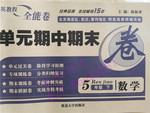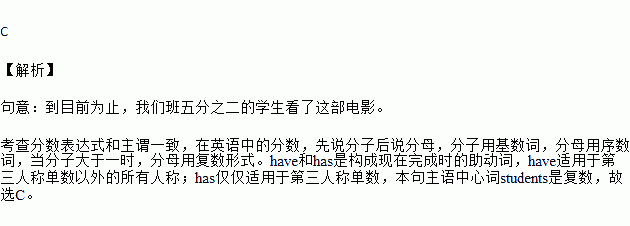题目内容
So far, ________of the students ________in our class seen the film.
A.two fifth; has B.two fifths; has C.two fifths; have
 单元期中期末卷系列答案
单元期中期末卷系列答案
Harry Potter and the Deathly Hallows By J. K. Rowling Paperback, 784 pages. Publisher : Arthur a Levine Date:07/07/2009 Reading level: Age: 9-12 Price: $16.69 |
Deceptively Delicious By Jessica Seinfeld Hardcover, 204 pages. Publisher: Collins Date:09/01/2007 Reading Level: Parents Price: $12.83 |
Rich Dad, Poor Dad By Robert T. Kiyosaki Paperback, 266 pages Publisher: Business Plus Date: 01/01/2010 Reading Level: Age 20-25 Price: $5.59 | The Road By Cormac McCarthy Paperback, 304 pages. Publisher: Vintage Books Date: 09/11/2007 Reading Level: Adults Price: $5.50 |

1.How many books written for children are there from the posters above?
A.One. B.Two. C.Three. D.Four.
2.Which of the following books is after 2009 in print?
A.Harry Potter and the Deathly Hallows
B.Deceptively Delicious
C.Rich Dad , Poor Dad
D.The Road
3.—How much will Mr. Wang pay for two of the books for adults? —At least .
A.$29.52 B.$18.42 C.$11.09 D.$18.33




